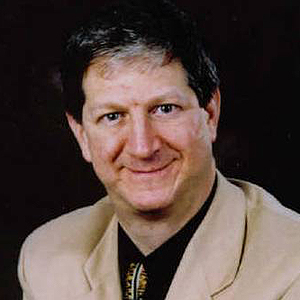New AM Faculty: David Keyes
 Columbia names David E. Keyes Fu Foundation Professor in Applied Mathematics.
Columbia names David E. Keyes Fu Foundation Professor in Applied Mathematics.
David E. Keyes, a leading professor of computational mathematics with strong ties to national research laboratories, is the new Fu Foundation Professor of Applied Mathematics at Columbia University’s Fu Foundation School of Engineering and Applied Science.
An affiliate of the Center for Data Intensive Computing at Brookhaven National Laboratory, Keyes is also the acting director of the Institute for Scientific Computing Research at the Lawrence Livermore National Laboratory (LLNL).
Prior to joining Columbia, Dr. Keyes was the Richard F. Barry Professor of Mathematics & Statistics at Old Dominion University and Director of its Center for Computational Science. The creation of the Fu Foundation Professor of Applied Mathematics in 1992 resulted from a generous gift from Z.Y. Fu, a longtime Columbia supporter who has made an enduring impact on the education and research at the University. Professor Chiu-Kun Chu, now Emeritus, was named the first Fu Foundation Professor of Applied Mathematics in 1992.
“We are delighted that David has joined our faculty,” says Michael Mauel, chair of the Department of Applied Physics and Applied Mathematics. “With the arrival of Professor Keyes, Columbia continues the great teaching tradition of Professor Chiu-Kun Chu, who was the creator of Columbia’s applied mathematics program. Our students will benefit greatly from David’s cutting edge instruction in the mathematical tools essential to the development and practical application of the world’s most powerful supercomputers.”
Since 1986, Keyes has spent the majority of every summer at a national laboratory, including 16 years partially in residence at the Institute for Computer Applications in Science and Engineering (ICASE) at the NASA Langley Research Center, Hampton, VA. Keyes also actively collaborates at Argonne National Laboratory, Argonne, Illinois, and was recently appointed Distinguished Visiting Scientist at Oak Ridge National Laboratory, Oak Ridge, Tennessee.
“Professor Keyes’ proven leadership in this vital research area opens new opportunities for Columbia,” noted Zvi Galil, Dean of The Fu Foundation School of Engineering and Applied Science. “Computational simulation is a critical skill need by today’s engineers and applied scientists. David’s appointment strengthens our School’s ties to our nation’s supercomputing facilities and offers mathematical leadership to our school’s interdisciplinary research in applied scientific computing.
Keyes works primarily on scalable algorithms for the large-scale simulations of systems governed by partial differential equations, including aerodynamics, radiation transport, and magnetohydrodynamics. A prolific writer, he is the author or co-author of over 100 publications in computational science and engineering, numerical analysis and computer science.
In 1999, Keyes shared the Gordon Bell Prize with a team that re-wrote a NASA aerodynamics simulation for high performance on distributed hierarchical memory supercomputers, including the then world-leading ASCI White IBM at LLNL.
Keyes is active in the Society for Industrial and Applied Mathematics, on whose council he serves, and the American Institute for Aeronautics and Astronautics.
"Columbia provides a wonderful environment for my collaborative interests in large-scale computational science," Keyes says. "There are several major computational science efforts naturally headquartered in their parent disciplines -- physics, geophysics, chemistry, biomedicine, etc. I expect to help build a graduate curriculum in algorithmic and software techniques that cuts across these projects, supports them, and is enriched by them, in turn. I am also looking forward to developing new collaborations and student research internship opportunities with nearby Brookhaven National Laboratory."
Keyes received his Ph.D. in applied mathematics from Harvard University in 1984, before joining Yale University where he taught mechanical engineering for eight years. He joined Old Dominion University and ICASE in 1993.
"Today's research in science and technology investigates natural and man-made systems that span multiple scales -- from nanometers to kilometers, from femto-seconds to seconds," says Mauel. "David Keyes's work helps to make computational simulation a more widely available research tool, on a par with experimentation and theory, by developing the algorithms that allow tens of thousands of processors in tightly coupled communication networks to resolve scientifically meaningful ranges of scales."
Columbia University's Department of Applied Physics and Applied Mathematics is home to leading researchers in materials science, nanoscale science, plasma physics, and earth science.
This story was originally published in Columbia News
